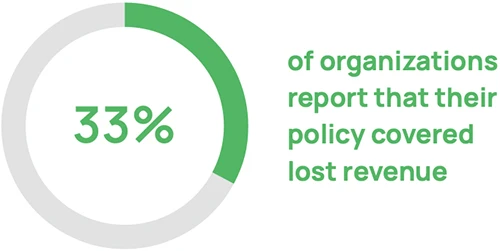What insurers really look at in your identity controls
Insurers judge organizations by the strength of their identity controls and by how consistently those controls are applied, according to a new Delinea report. CISOs are entering a market that rewards maturity and penalizes gaps that once passed without scrutiny.

Control maturity is the baseline for insurability
Nearly all security leaders said they were required to have at least some security controls in place before coverage was approved. Insurers expect organizations to show progress in identity, access, detection, and resilience practices. The bar rises at renewal, and few policies move forward without detailed reviews of access design and daily enforcement.
Insurers want to see how least privilege is applied, how privileged sessions are monitored, and how consistently MFA is enforced. They look for password discipline, secure remote access, and the ability to respond quickly to compromised accounts. These expectations reflect how often recent breaches begin with misuse or theft of identity and access.
Claims rise and insurers respond with tighter assessments
Many organizations reported filing at least one claim in the past year, and a sizable share reported multiple incidents. Insurers are refining how they evaluate risk before offering or renewing coverage. They require internal control reviews, third party risk assessments, and confirmation that recommended improvements are in place.
Insurers also pay closer attention to the link between identity maturity and claim frequency. Organizations with well governed identities tend to experience fewer severe events, while those with scattered access practices often see more claims. This pattern is shaping how insurers judge risk and set pricing.
“We’re seeing a rapid shift from cyber insurance being a financial backstop to an audit of an organization’s identity and access posture. Identity-first security is more than just best practice. It’s now an underwriting requirement,” said Art Gilliland, CEO of Delinea.
Coverage limitations create hidden exposure
One of the most important findings is the widening gap between what CISOs assume their policy covers and what it actually covers. Many leaders expect protection from all major financial impacts of a cyber incident. In practice, coverage is uneven. Only 33% of respondents said their policy covers lost revenue. Many reported limited support for ransomware services, incident response, or legal costs.
CISOs may think their financial exposure is contained when it is not. Insurers increasingly add language that can void a policy if required controls were missing or misconfigured at the time of an incident. These conditions often focus on identity and access weaknesses, since they are frequent root causes. A policy may appear broad but still fail to pay out if insurers decide key controls were not maintained.
Identity controls influence premium decisions
Identity practices no longer sit on the sidelines of underwriting. They directly shape premium levels and coverage strength. Only a small share of organizations said identity controls had no influence on renewal terms. Most said identity discipline played a measurable role in insurer decisions.
Privileged access management often proves the most influential factor because insurers see it as a direct measure of an organization’s ability to contain a breach. Identity governance follows, especially in environments with complex operational or regulatory needs. Controls on vendor and third party access also matter, since many breaches begin with supplier compromise. The report reinforces this by noting that 46% of the incidents that led to claims involved identity issues or privileged account misuse.
Organizations that invest in identity maturity tend to receive more favorable terms. Those that neglect it face higher costs and more restrictive language.
AI brings stronger defenses and new exclusions
Organizations reported receiving financial incentives for adopting AI assisted security controls. 86% said insurers offered credits or reductions tied to AI based capabilities. The most common benefits came from AI driven threat detection, behavioral analytics, and adaptable authentication.
CISOs also said insurers have added exclusions tied to AI misuse or failure. These exclusions often focus on model errors, problems in vendor supplied AI services, and issues triggered by malicious or manipulated inputs. Insurers expect AI to reduce risk when governed well, but they also see it as a potential source of uncontrolled liability.

Discover how Delinea can help de-risk your identity sprawl and rein in your identities.